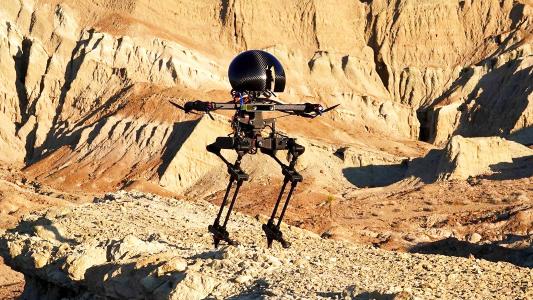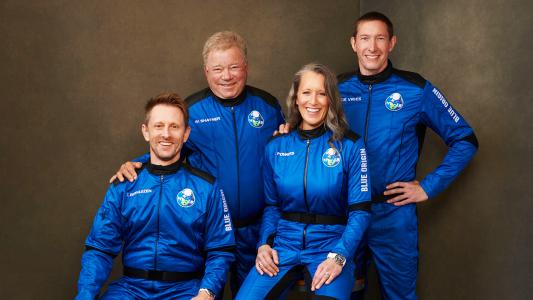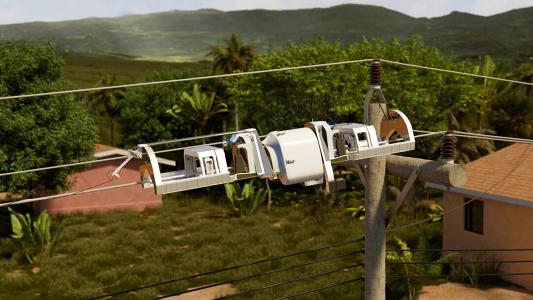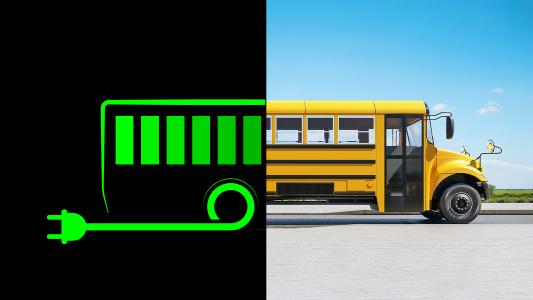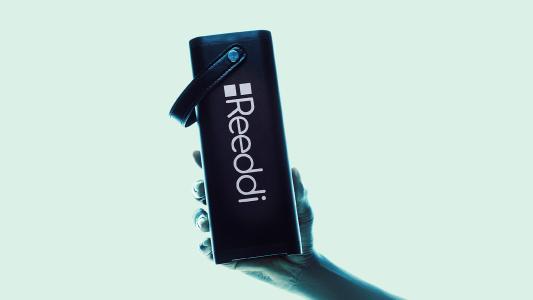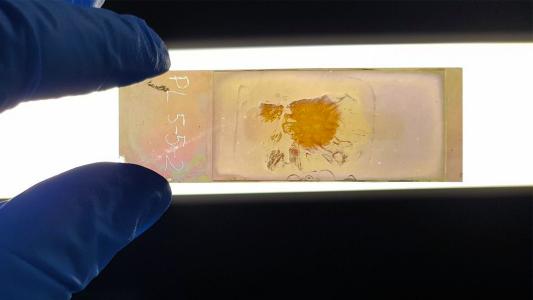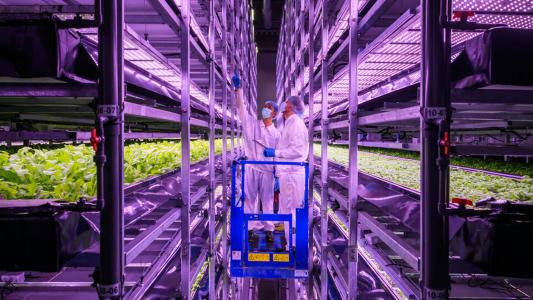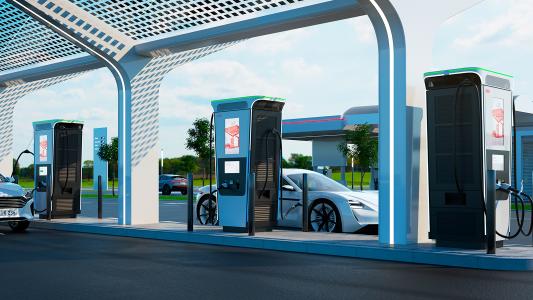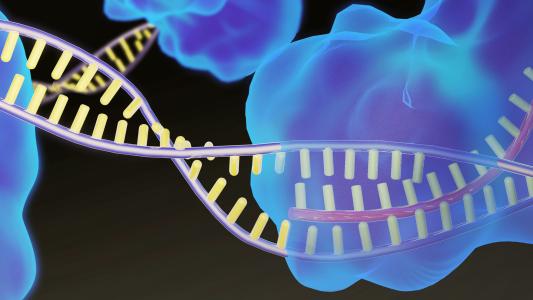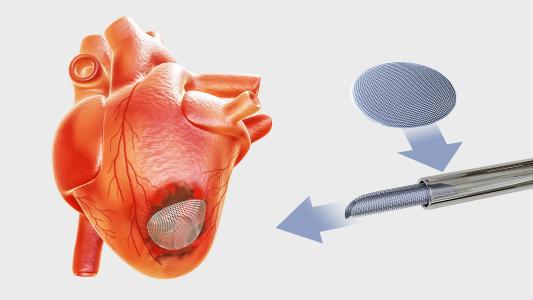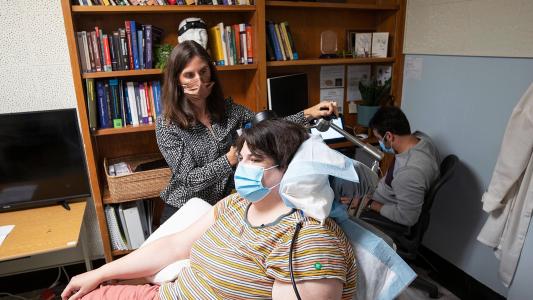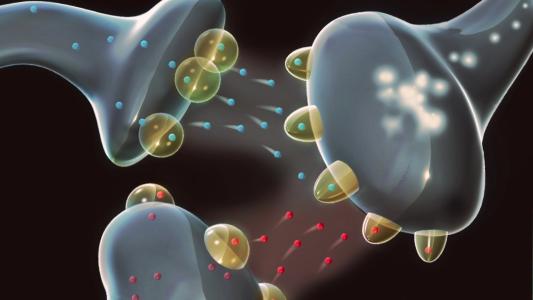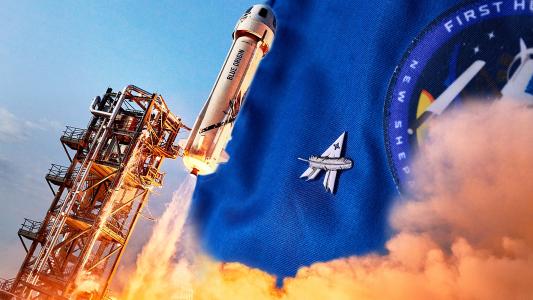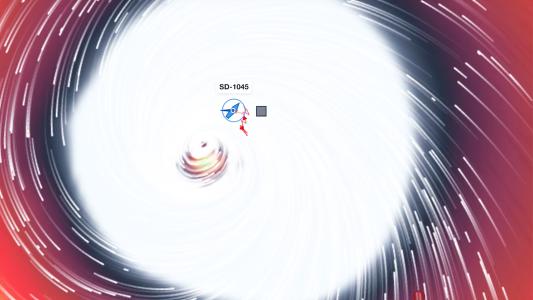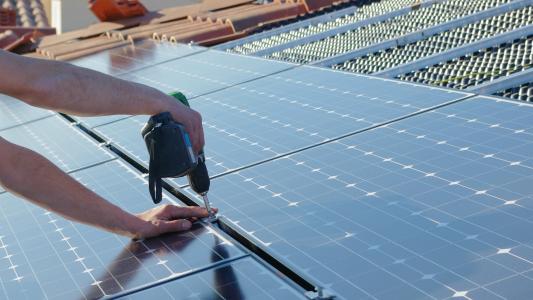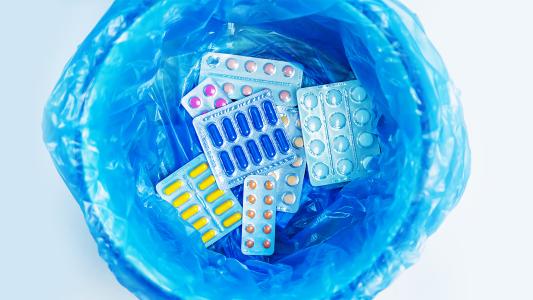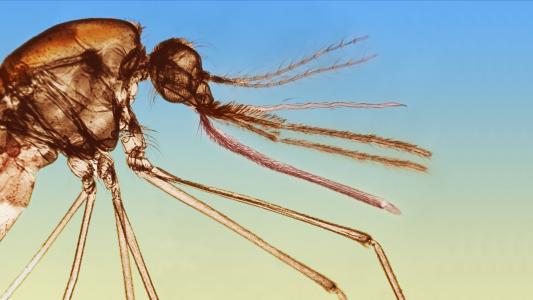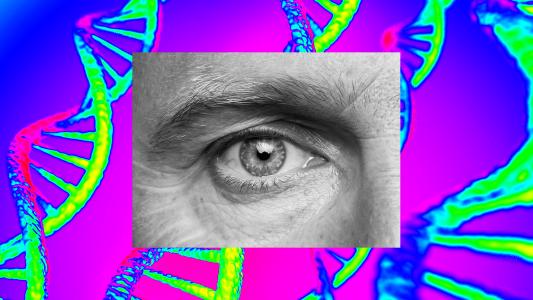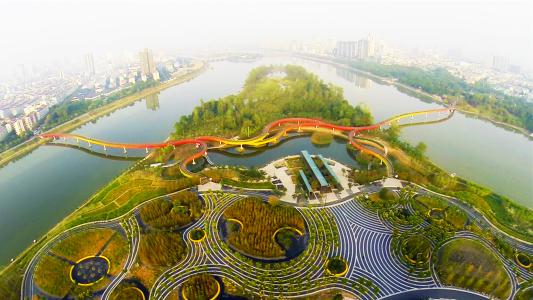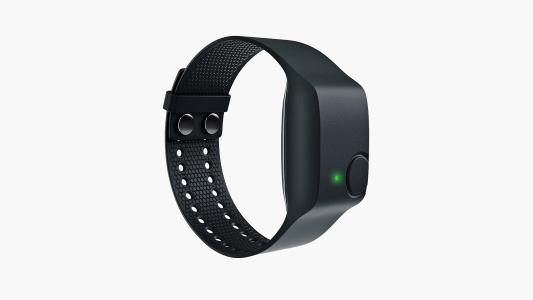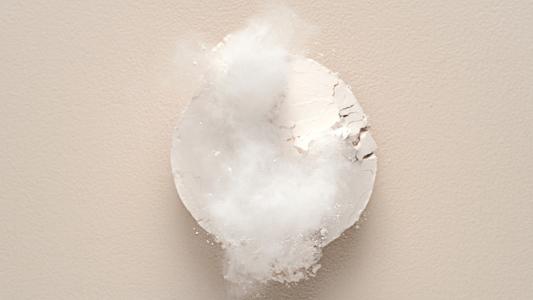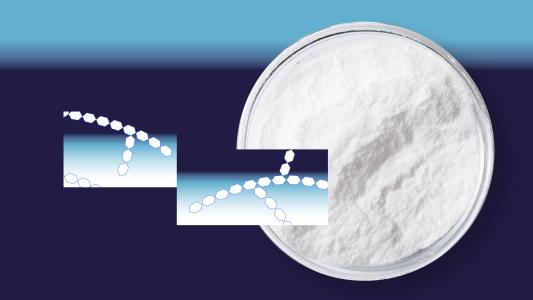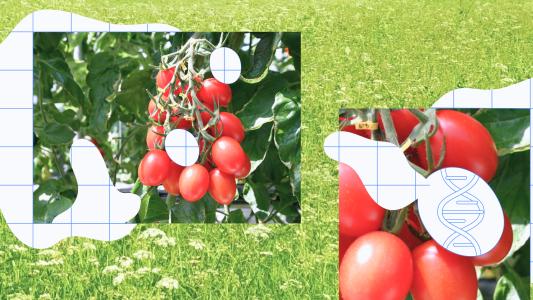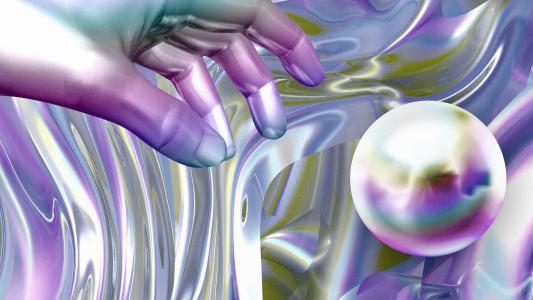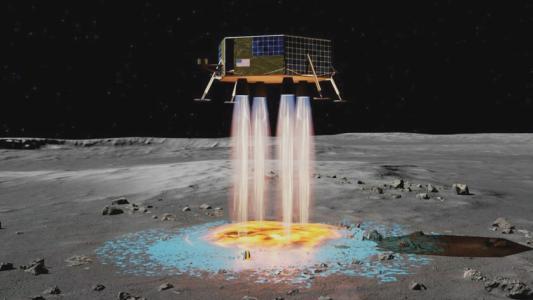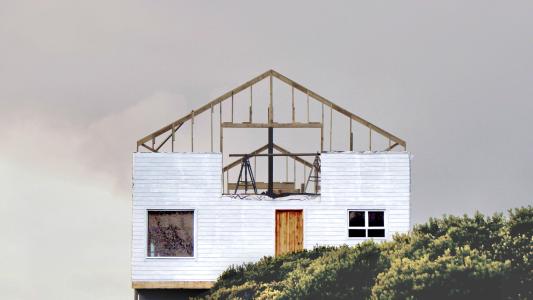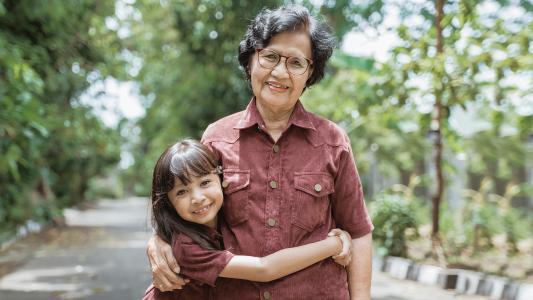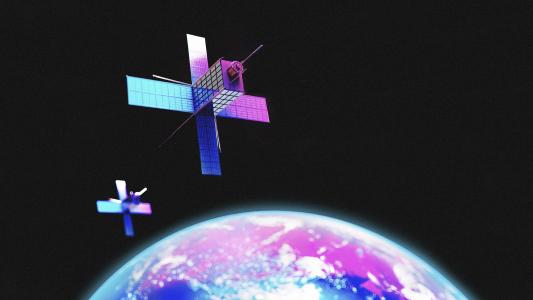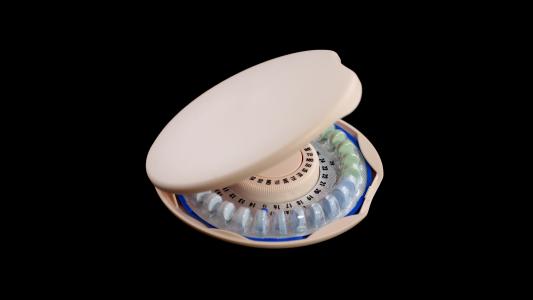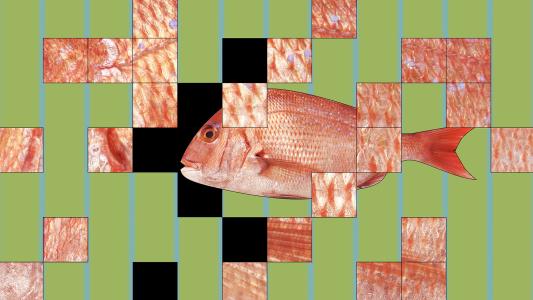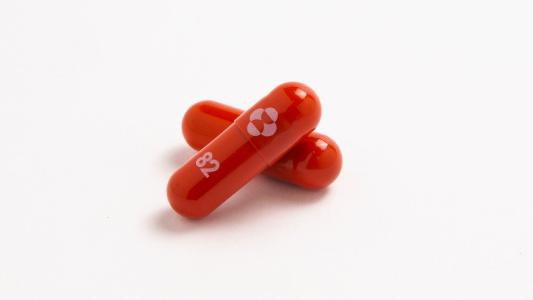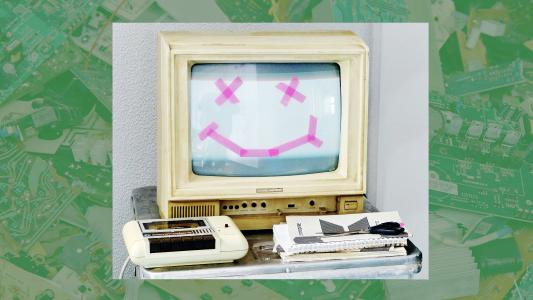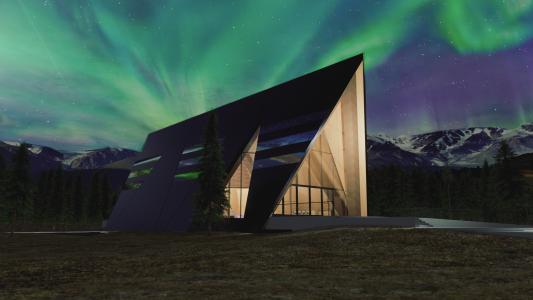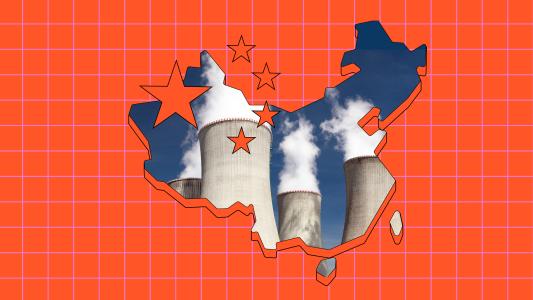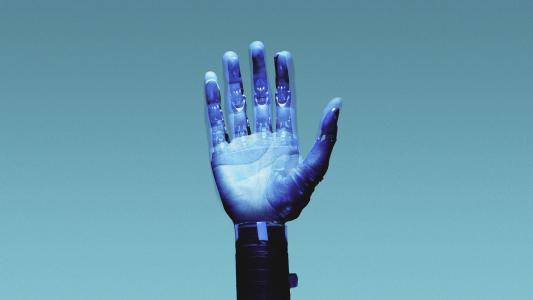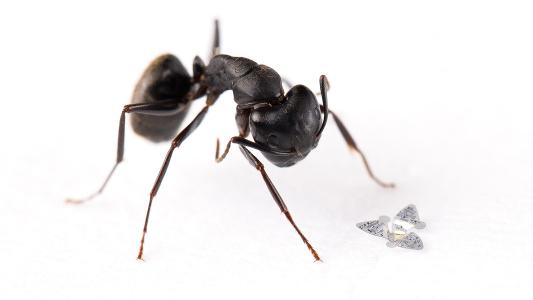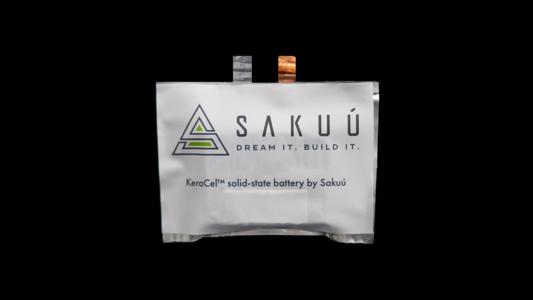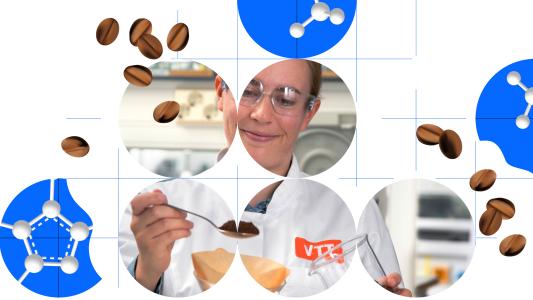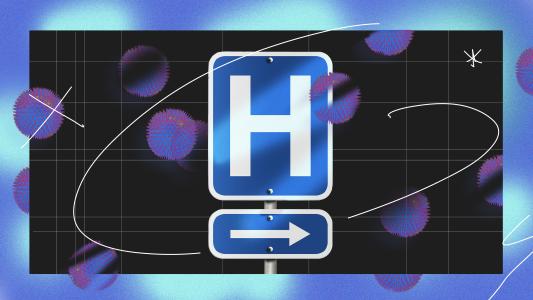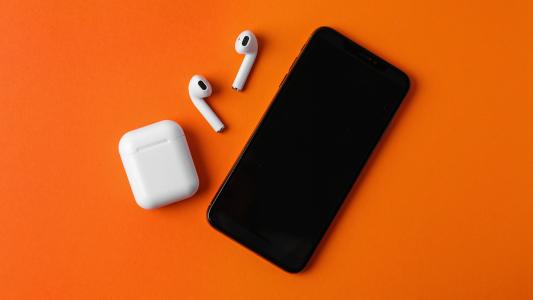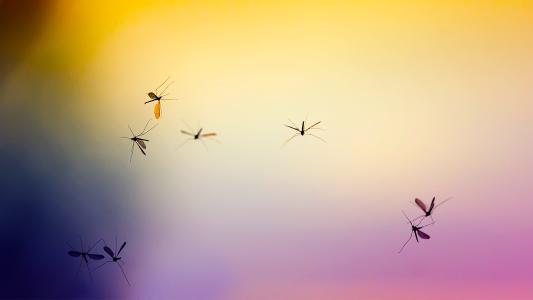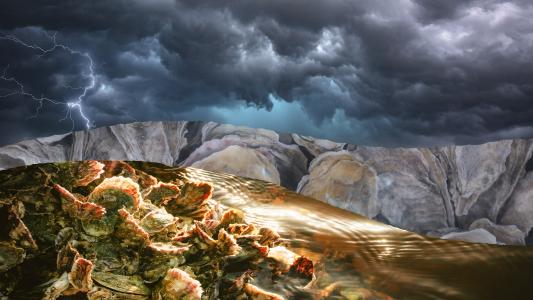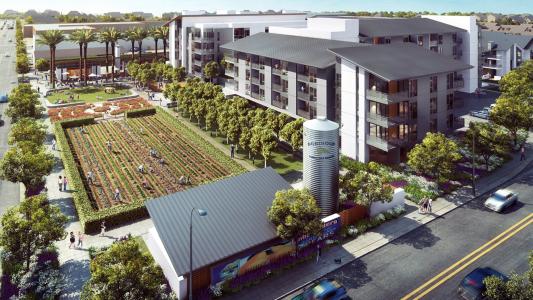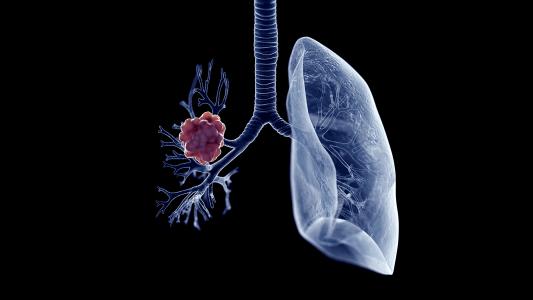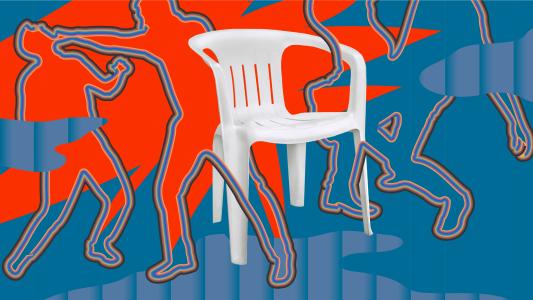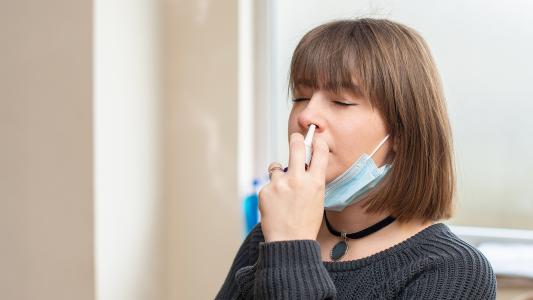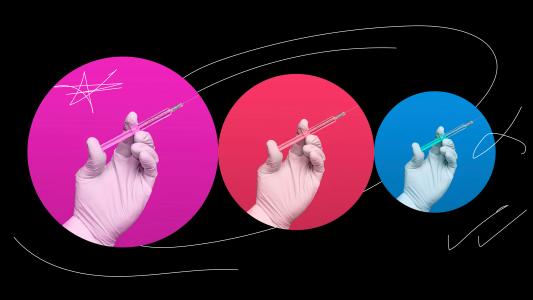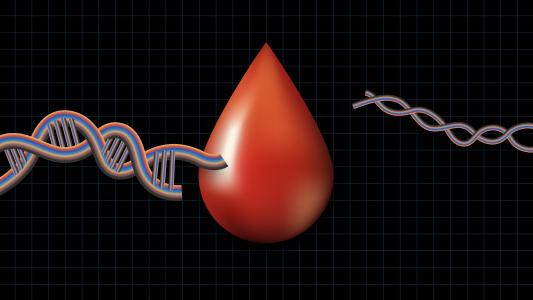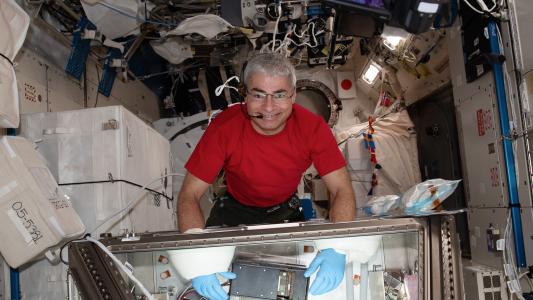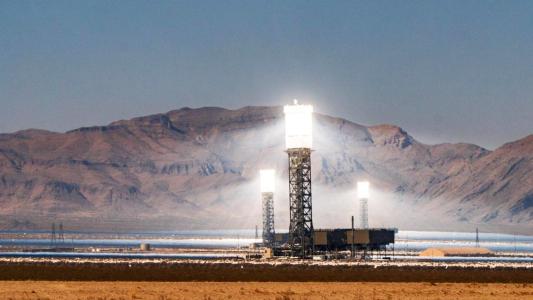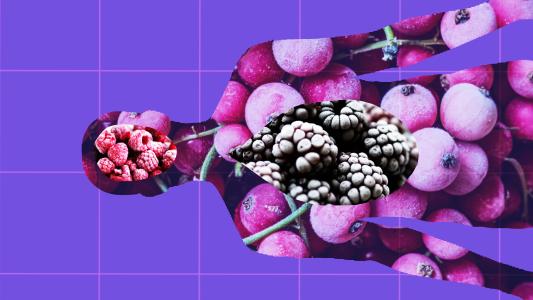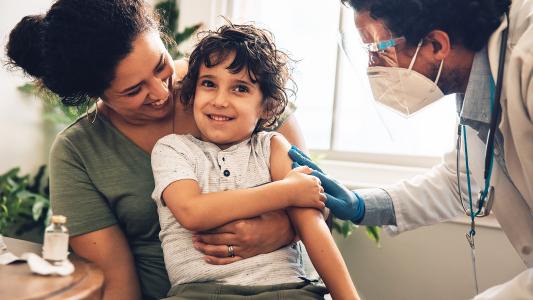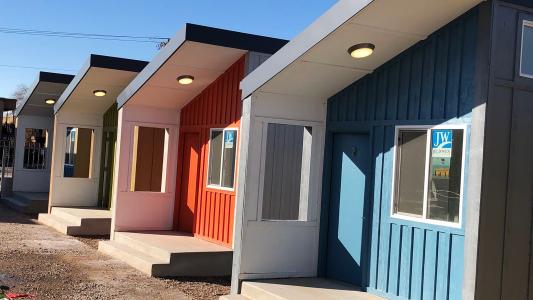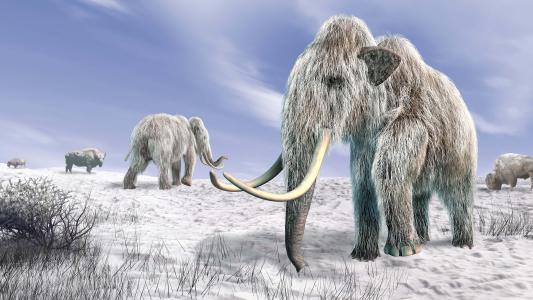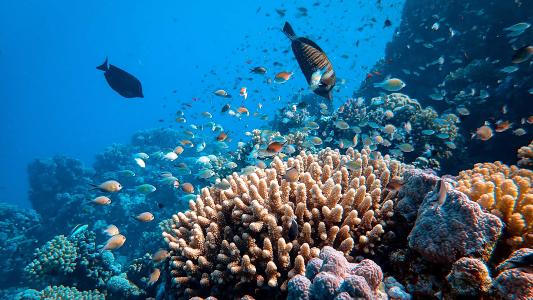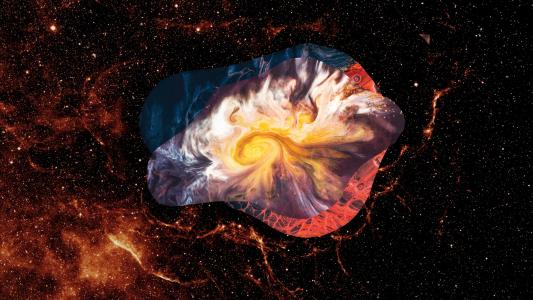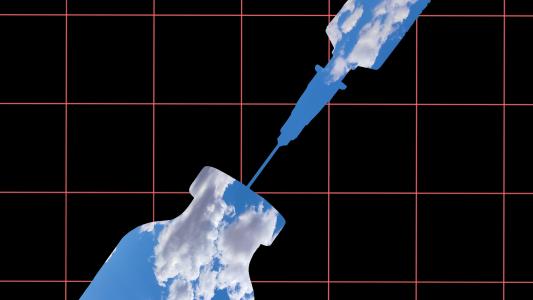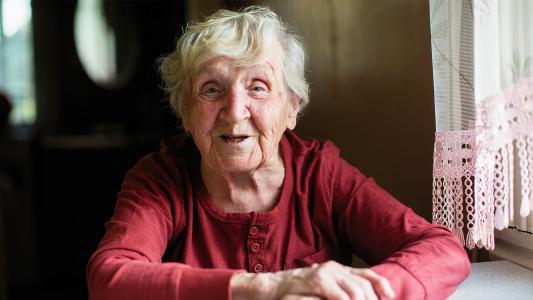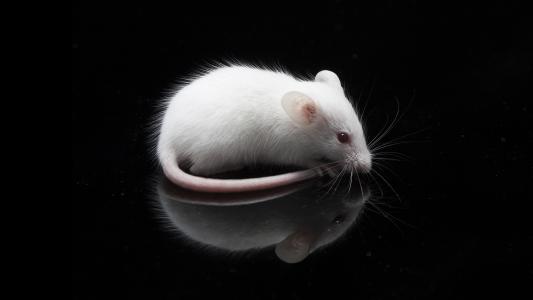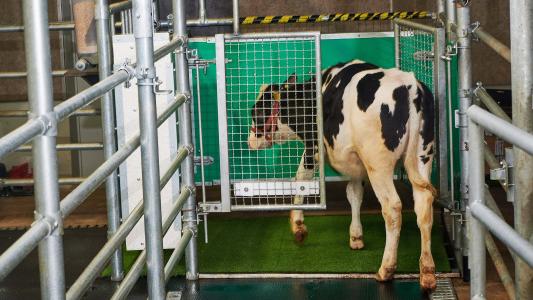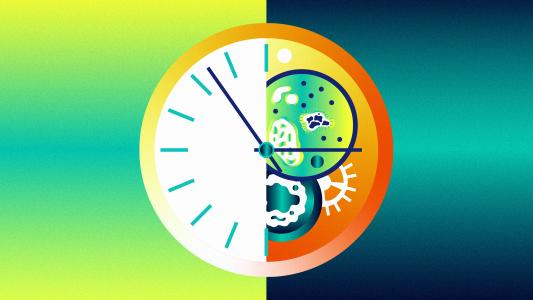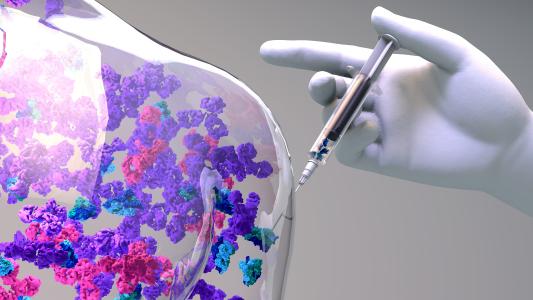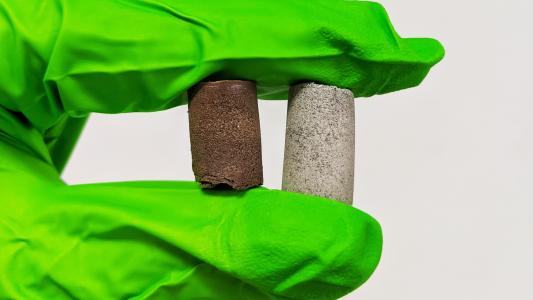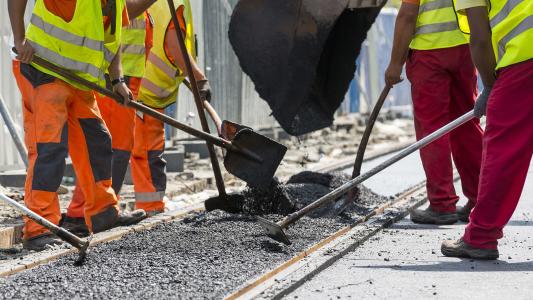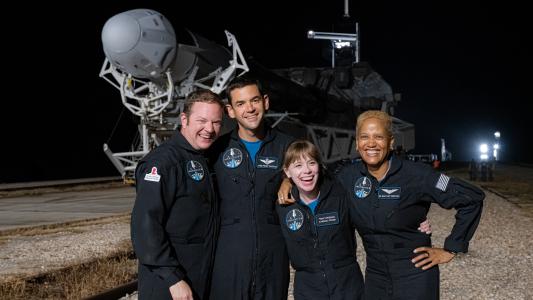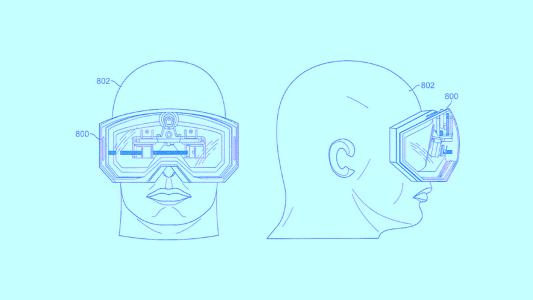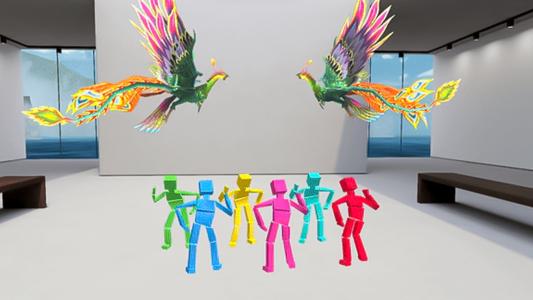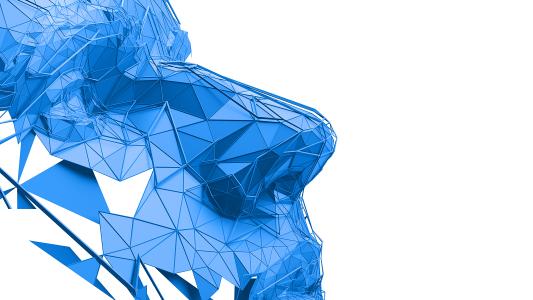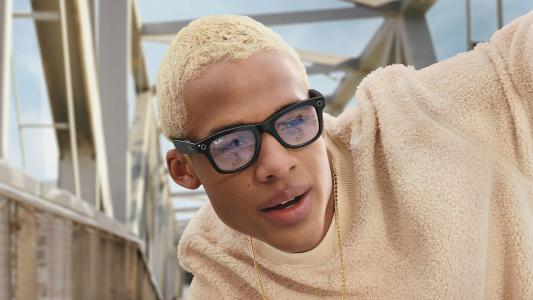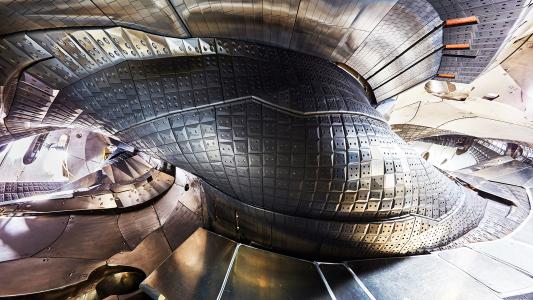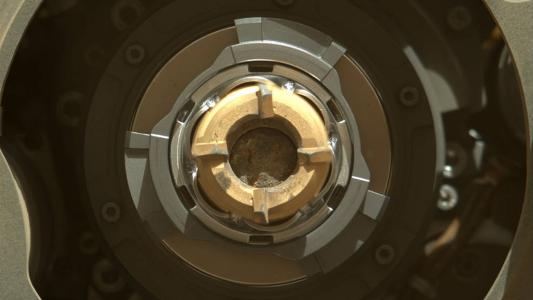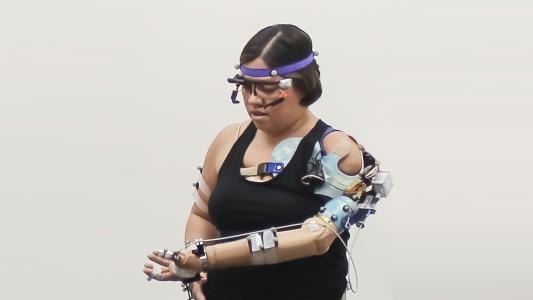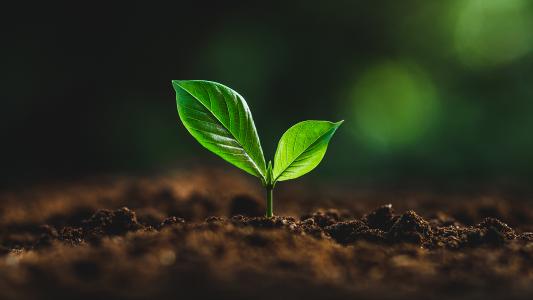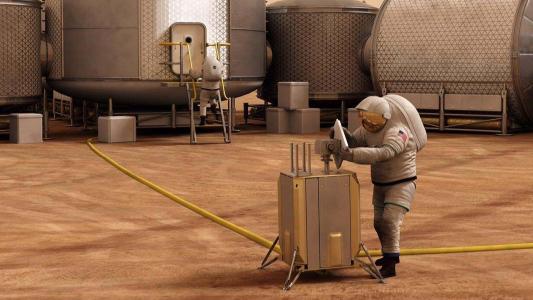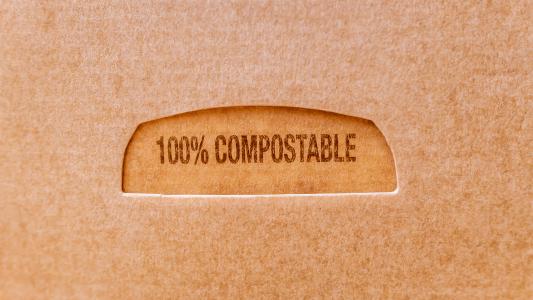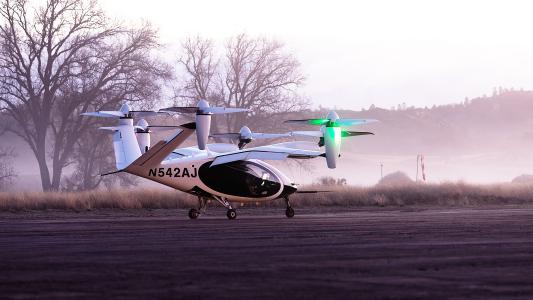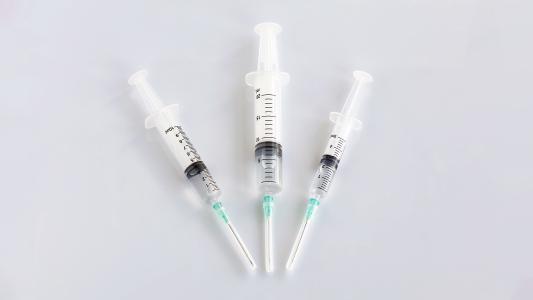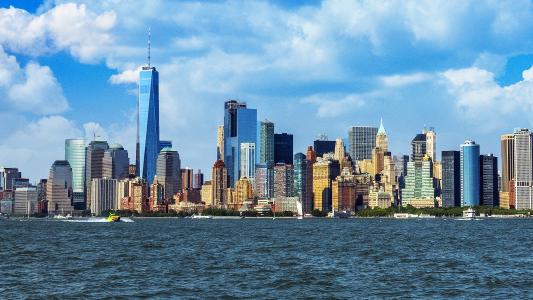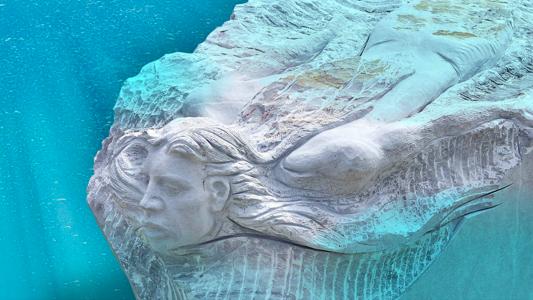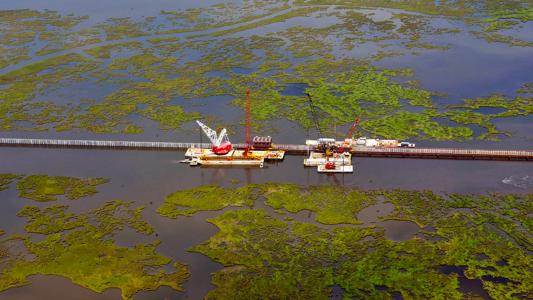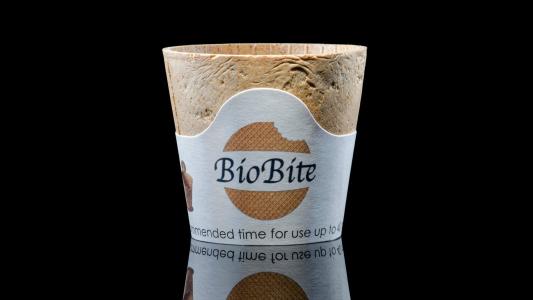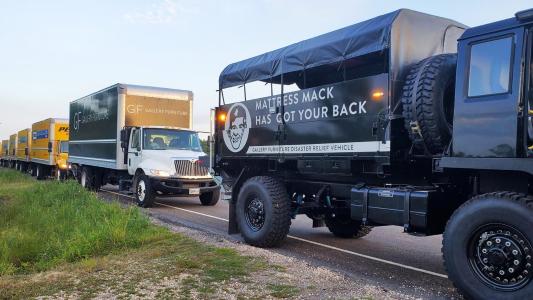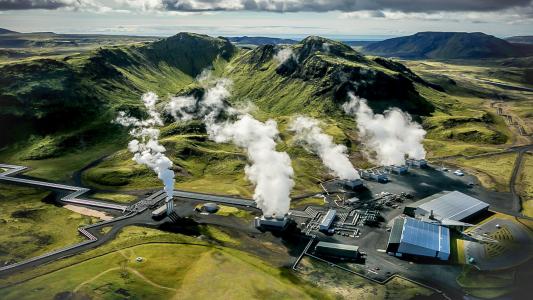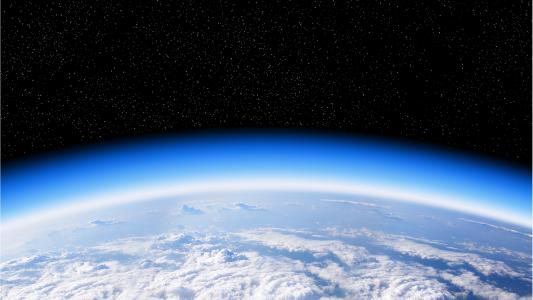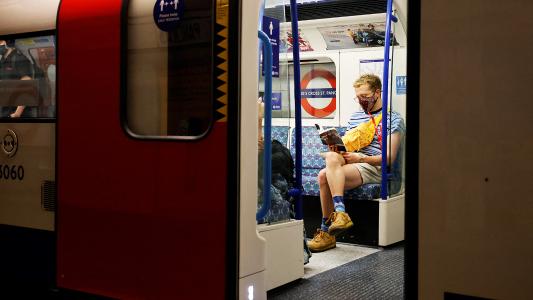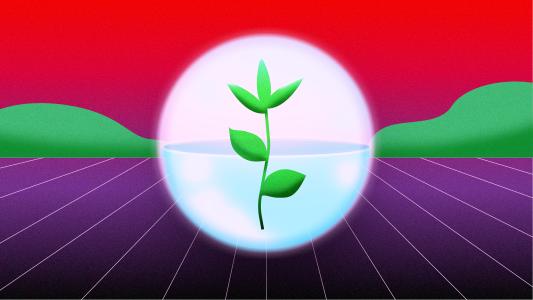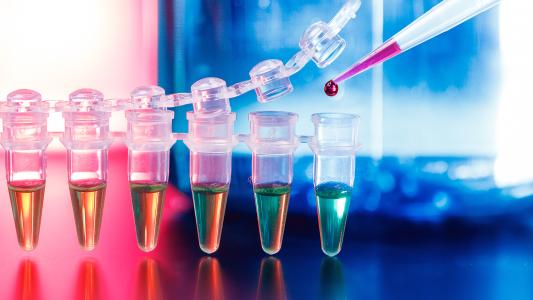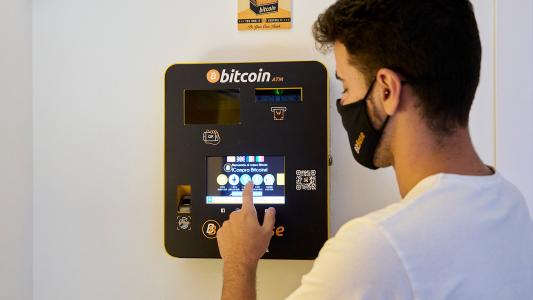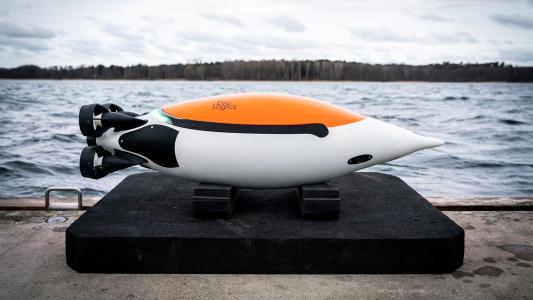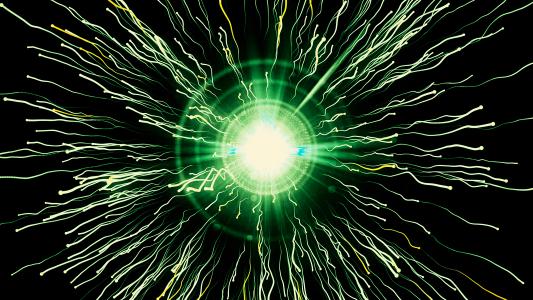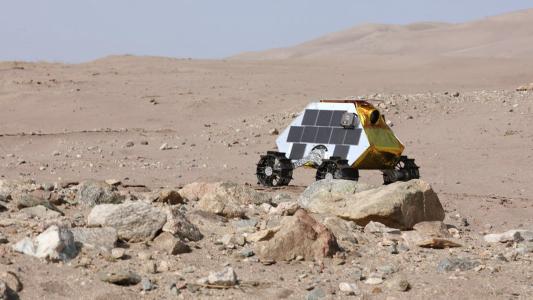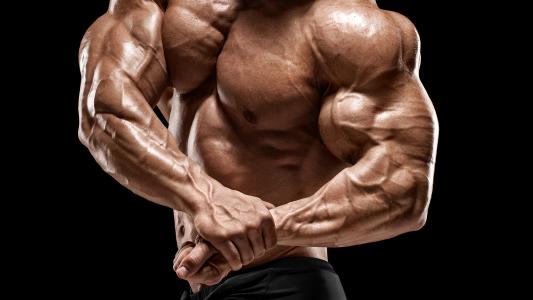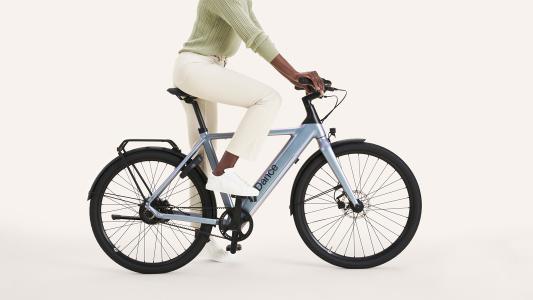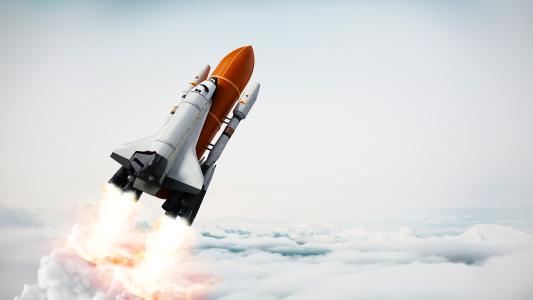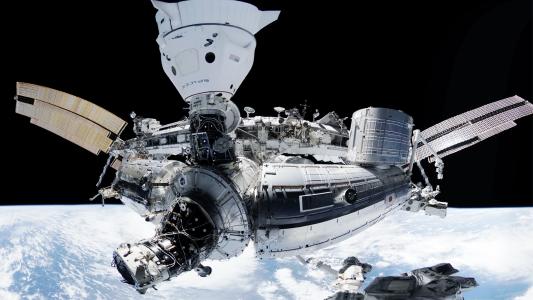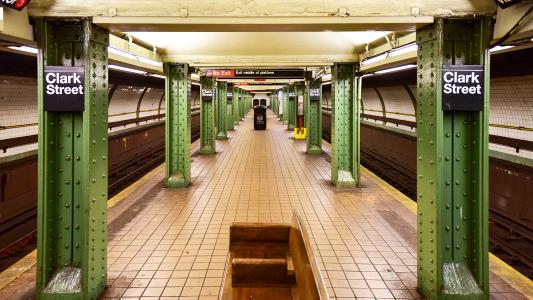Caltech’s walking robot can also fly and skateboard
Caltech's new bipedal walking robot can fly to get around obstacles, and it's steady enough on its feet to skateboard or slackline.
William Shatner has boldly gone to space with Blue Origin
Star Trek actor William Shatner has gone to space as a passenger aboard Blue Origin’s second crewed flight — making him the oldest astronaut.
Facebook robot winds fiber-optic cable around power lines
A Facebook robot that wraps fiber-optic cables around power lines could help bridge the digital divide by expanding internet access.
Electric school buses: good for the planet, better for kids
School bus electrification is on the rise and heading toward a national fleet of people-movers that is healthier all around.
Solar power batteries offer Nigerians green energy
A startup in Nigeria is offering solar power batteries at corner stores.
Smart microscope slides make breast cancer cells leap off screen
Breast cancer cells appear brightly colored when placed on new smart microscope slides, which could help doctors diagnose patients earlier.
Inside Europe’s largest vertical farm
At a massive vertical farm in Denmark, food tech startup Nordic Harvest is demonstrating the benefits of moving agriculture indoors.
New EV charging station quickly powers four vehicles at once
Swiss tech company ABB has unveiled a new EV charging station that can quickly power four vehicles at once.
CRISPR is revolutionizing medicine — its origin story is pretty incredible, too
The origin story of CRISPR highlights how groundbreaking discoveries can emerge from run-of-the-mill research.
New cardiac patch can be implanted with a syringe
A new cardiac patch developed by Canadian scientists could help repair heart damage by supporting tissue without blocking electrical activity.
Brain implant relieves woman’s treatment-resistant depression
A woman with severe treatment-resistant depression has found relief, thanks to “pacemaker” implanted in her brain by UCSF researchers.
Here’s why sensory perception research was awarded a Nobel Prize
Physiologists David Julius and Ardem Patapoutian were awarded the Nobel Prize in Medicine for their research on human sensory perception.
Science fiction doesn’t predict the future. It inspires it.
Jeff Bezos’ love of Star Trek inspired him to go to space. Here are a few other innovators to draw inspiration from science fiction.
This drone footage from inside a hurricane is wild
Saildrone and NOAA have teamed up to collect footage and data inside a category four hurricane. And they shared the stunning footage online.
Solar panel recycling: how companies will make it work
By recovering the high-value materials, solar panel recycling could become an economically viable option for aging panels.
Therapy can relieve chronic back pain by rewiring the brain
A psychological treatment for chronic back pain left two-thirds of study participants with little-to-no pain after just one month.
WHO recommends its first malaria vaccine
A malaria vaccine developed by GlaxoSmithKline, Mosquirix, has been recommended for use by the World Health Organization.
CRISPR partially restores vision in colorblind people
Scientists used CRISPR to direct edit DNA inside a healthy human cell, restoring partial vision to blind people.
Can sponge cities help us prepare for more floods?
Deadly floods are expected to get worse over the next decade. One design solution for cities is to make them more porous — like a sponge.
Robot avatar safely trims trees around active power lines
A robot avatar that mimics the motions of a human controller could take the place of workers in dangerous jobs by the end of 2022.
Wearable health monitors help predict flu before symptoms start
A human challenge trial suggests that wearable health monitors could help predict flu and cold infections before symptoms appear.
Lab-grown milk proteins prove more environmentally friendly
It’s less environmentally costly to produce milk proteins in the lab than to source them from cows, according to a new report.
Scientists convert CO2 into synthetic starch
A process for making synthetic starch from CO2 eliminates the need for growing resource-intensive starchy plants.
This gene-edited tomato may help lower your blood pressure
A gene-edited tomato that may be able to lower your blood pressure is the first CRISPR-edited food to be sold commercially.
These holograms are so real you can touch them
Researchers developed hologram technology that uses air jets to create physical sensations, giving users the ability to feel virtual objects.
Spacecraft tech turns moon dust into “near-instant” landing pads
To protect spacecraft from moon dust, Masten Space Systems is developing a tech that quickly creates landing pads on the surface of the moon.
Startup is turning abandoned houses into affordable homes
The startup nonprofit Parity is renovating abandoned houses in Baltimore and then selling them to locals at affordable prices.
Why employers might pay your parents to watch your kids
The Helpr app makes it easy for working parents to get their employers to pay for backup childcare provided by friends and family members.
Europe backs “space factory” set for 2022 launch
UK startup Space Forge is developing a space factory designed to make “microgravity on demand” a reality for researchers and manufacturers.
An at-home test to find your best birth control option
Seattle-based startup adyn is developing an at-home testing kit to help women find their best birth control method.
Gene-edited fish grow up to 60% more muscle
A gene-edited fish that grows up to 60% more muscle on the same amount of feed could help revitalize Japan’s aquaculture industry.
Pill to treat COVID-19 cuts risk of hospitalization or death in half
A pill to treat COVID-19 that cut hospitalizations and deaths in half could become the first oral medication against the disease.
Can tech rentals solve the problem of electronic waste?
To combat the problem of electronic waste, German startup Grover is now selling Americans subscriptions to laptops, phones, and other tech.
These nuclear reactors can recycle radioactive waste
The future of the nuclear industry lies in developing cheaper and more nimble reactors.
China’s experimental thorium reactor is ready for testing
An experimental thorium reactor in China could greatly expand the number of people who can benefit from clean nuclear energy.
MIT’s new bionics center may usher in our cyborg future
MIT has established a new bionics research center to help people everywhere overcome the challenges of disabilities.
Flying microchips the size of sand are tracking air data. Watch them fly.
Scientists have built the smallest artificial flying structures yet — gadgets that could one-day monitor air pollution and the spread of airborne diseases.
What does China’s crypto ban mean for the tech world?
The ban could lead to an exodus of Chinese crypto entrepreneurs and a diffusion of crypto technology in Southeast Asia.
New 3D-printed batteries could change energy storage forever
A 3D-printing startup has created a solid state battery that "equals or betters" the performance of current lithium-ion batteries.
Scientists make sustainable coffee from lab-grown cells
Finnish researchers are making sustainable coffee in the lab to combat the negative environmental effects of coffee production.
Antiviral reduces COVID-19 hospitalizations by 87%
The FDA-approved antiviral drug remdesivir prevents high-risk people from ending up in the hospital, if given early.
No more cords: one day an entire room may power up all your devices
Charging rooms may free us from the tangle of cords needed to power our electronic devices.
A malaria antibody prevented infections in purposefully-infected volunteers
In a small study, researchers found an antibody that prevents malaria infection in people purposefully infected with the parasite.
How oyster reefs protect against hurricane damage
Coastal cities are turning to eco-engineering to protect their coastline from storm surges and hurricane damage. Their floodwater solution: building oyster reefs to act as a natural breakwater.
“Agrihood” puts a farm in the center of Silicon Valley housing
An “agrihood” under construction in Santa Clara, CA, will give low-income residents access to cheap produce grown onsite.
Johns Hopkins has developed a lung cancer blood test
Researchers at Johns Hopkins are using AI to power a lung cancer blood test.
“Violence interrupters” combat crime from lawn chairs
Groups of violence interrupters are spending time in dangerous neighborhoods so they can be present to defuse potentially violent situations.
Want better nasal vaccines? Look to the bacteria in your nose.
Researchers are investigating the link between the bacteria inside your nose and how effective nasal vaccines can be.
FDA approves COVID-19 boosters for seniors, high-risk groups (Updated)
The FDA has expanded its authorization of COVID-19 boosters of Pfizer’s vaccine to include seniors and people in high-risk populations.
New portable blood test kit is cheap, fast, and accurate
A new blood test kit that’s fast, portable, and accurate could help bring better healthcare to people in remote and underdeveloped areas.
Astronaut to break NASA’s record for longest time in space
Astronaut Mark Vande Hei is poised to set a new NASA record for longest time in space, spending about 353 days aboard the ISS.
Can these mirrors give us solar power at night?
Concentrated solar power plants could help us achieve our clean energy goals, but it won't come cheap.
Study suggests preserving food using tech developed for organs
By preserving food with isochoric freezing, we could improve quality and decrease energy usage in the frozen food industry, say scientists.
Pfizer says its COVID-19 vaccine works in kids
New trial results suggest Pfizer’s COVID-19 vaccine works in kids between the ages of 5 and 11, safely triggering a robust antibody response.
Tiny home village offers services for homeless people
Albuquerque, New Mexico opened a tiny home village to give homeless people shelter and a chance to get back on their fee
Can the woolly mammoth save Siberia from climate change?
Harvard geneticist George Church’s new de-extinction startup aims to resurrect the woolly mammoth to help combat permafrost thaw.
Probiotics could help coral survive the changing climate
A new study has found that probiotics can help corals fight coral bleaching.
Mystery of Chinese supernova solved after 800 years
A new study explains where the mysterious “Chinese supernova” went after disappearing from the night sky more than 800 years ago.
Trial of opioid vaccine launches in US
An opioid vaccine that prevents people with opioid use disorder from feeling “high” when they take oxycodone is moving to human trials.
How we doubled our life expectancy in the last 100 years
“The idea of taking a pill and getting better is actually a very recent invention.”
mRNA cancer treatment shrinks tumors in mice
An mRNA cancer treatment in human trials has proven incredibly effective in mice, shrinking tumors in 85% of the rodents tested.
How artificial clouds could save the Great Barrier Reef
Scientists conducted the first “cloud brightening” field experiment to artificially thicken clouds with seawater mist, creating shade for the Great Barrier Reef
Scientists toilet-train cows to reduce air pollution
To combat the negative environmental impact of cow urine, researchers have proven it's possible to potty-train calves.
This implanted microchip may one day control your sleep
An implantable, wireless device could be better than popping a pill.
Moderna’s new vaccine targets COVID-19, the flu, and RSV
Moderna is developing a combination vaccine to protect against COVID-19, seasonal influenza, and respiratory syncytial virus.
Mars colonies could be built from astronauts’ blood and urine
To minimize the cost of building Mars colonies, astronauts could make concrete using space dust and their own bodily fluids.
UK building road with “wonder material” graphene
The United Kingdom is launching a world’s first trial to test whether adding graphene to recycled asphalt can increase a highway’s lifespan.
Ex-felon helps former prisoners launch careers in tech
The Underdog Devs nonprofit helps former prisoners make the connections they need to secure jobs in the technology industry
All-civilian Inspiration4 mission is ready for launch (Updated)
When Inspiration4 launches on September 15, it'll mark a new era in space tourism as the first all-civilian mission to space.
Here’s what we just learned about Apple’s AR/VR headset
New details about custom AR/VR chips point to realities of Apple’s long-awaited headset.
Understanding the metaverse through Spatial
From virtual collaboration to NFT Galleries, one of the immersive industry’s most ambitious startups is making its metaverse play.
MIT’s robotic nose can detect first sign of disease
A powerful diagnosis tool may one day be in millions of smartphones.
Facebook’s smart glasses are stylish and creepy
Facebook and Ray-Ban have released a new line of smart glasses that can take photos, answer phone calls, and play music and podcasts.
Twisty nuclear fusion reactor gets twice as hot as the sun
Physicists optimized a nuclear fusion reactor to overcome a problem that causes heat loss and prevents the device from sustaining fusion.
Perseverance rover collects first Mars rock sample — for real
NASA’s Perseverance rover has collected its first Mars rock sample, which the agency plans to send to Earth in 2031.
New bionic arm is incredibly close to the real thing
A new bionic arm is so intuitive, wearers think and behave like people without amputations while using it to perform everyday tasks.
Molecular farming could be the future of vaccines
Edible plant-based vaccines could revolutionize how we fight diseases.
Space radiation won’t stop missions to Mars
A new study predicts that space radiation alone wouldn’t make missions to Mars too risky for astronauts — as long as we timed them right.
Think smart about disposable packaging with this scorecard
A new scorecard called the Understanding Packaging (UP) Scorecard is helping businesses make sustainable decisions on disposable packaging.
Why NASA is testing an electric flying taxi
NASA is spending two weeks listening to Joby Aviation’s flying taxi as part of a campaign to integrate eVTOL vehicles into U.S. airspace.
Study: COVID-19 booster shots dramatically reduce infection risk
A large COVID-19 booster shot study in Israel found that a third dose significantly increased seniors’ protection against the coronavirus.
Forensic scientists continue mission to identify 9/11 victims
Forensic scientists have identified two more 9/11 victims and will soon use next-generation sequencing to analyze unidentified remains.
Unique underwater sculptures thwart harmful illegal fishing
Paolo Fanciulli, a fisherman from Maremma, is sinking artists’ sculptures to the seafloor to stop bottom trawling.
Rule-bending engineers protect New Orleans from Hurricane Ida
By going beyond the "100-year storm" standard for flood protection, U.S. engineers helped minimize the impact of Hurricane Ida on New Orleans.
Soccer fans can enjoy a waste-free edible coffee cup
The English Premier League, the most-watched league in the world, is aiming to become sustainable by offering an edible coffee cup at the Etihad Stadium.
Furniture store gives Hurricane Ida victims a place to sleep
Houston furniture store owner Jim “Mattress Mack” McIngvale is letting Hurricane Ida victims displaced by the storm sleep in his showroom.
The world’s largest direct air capture plant just opened
A partnership between Climeworks and CarFix just started the largest direct air capture plant, storing carbon dioxide in solid form deep underground.
Saving the ozone layer avoided 2.5 degrees of global warming
A new study shows that banning CFCs in the 80s also protected the depleting ozone layer and reduced the rate of global warming.
UK researchers are growing the Delta variant for human challenge trials
Responding to the variant’s rise, UK researchers are growing the Delta variant for trials.
These farmers want to salt the earth — and grow crops in it
As salt encroaches on productive agricultural land, a handful of startups are finding ways to make crops grow in seawater with genetic modification and transforming solar saltwork.
A blood test for your circadian clock
Your circadian clock controls more than when you sleep and wake. Researchers are developing a simple blood test to try and accurately tell your time.
Bitcoin is now ‘legal tender’ in El Salvador
If more countries follow, what will this mean for consumers and businesses around the world?
Robot penguins are exploring mysterious ocean currents
In an effort to study mysterious ocean eddies, an oceanographer teamed up with a bionics company to build an AUV inspired by penguins.
Scientists observed what Einstein predicted a century ago
Physicists claim to have generated matter from pure light particles for the first time — a spectacular display of Einstein's most famous equation.
NASA pays space startup $.10 for moon mining mission
NASA paid Colorado startup Lunar Outpost $.10 as part of a moon mining contract that could help advance human space exploration.
Cambridge researchers have created a mathematical model for building muscle
Now there’s a mathematical model that could maximize the effectiveness of exercise.
Don’t want to buy an e-bike? Subscribe to one.
German startup Dance's e-bike subscription service gives people a chance to enjoy the benefits of the bikes without the hassles.
Can we (legally) colonize space?
The space race is heating up, but many legal issues are still open to debate.
VR spacewalk will let you see what ISS astronauts see
A VR spacewalk filmed by an “outer space camera” will be the centerpiece of the next episode of Space Explorers: The ISS Experience.
Is it possible to flood-proof the subways?
In the wake of Hurricane Ida and the flooded New York City subway system, can we rebuild flood-proof subway tunnels?
